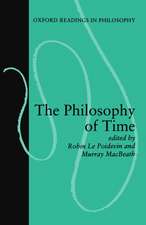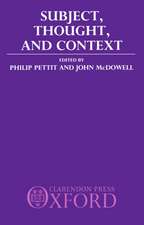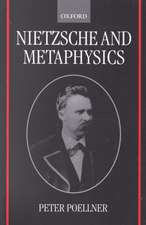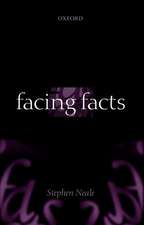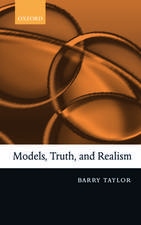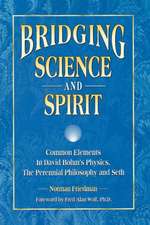Creative Evolution
Autor Henri Bergson Traducere de Arthur Mitchellen Limba Engleză Paperback
Creative Evolution
By Henri Bergson
Translated by Arthur Mitchell
The history of the evolution of life, incomplete as it yet is, already reveals to us how the intellect has been formed, by an uninterrupted progress, along a line which ascends through the vertebrate series up to man. It shows us in the faculty of understanding an appendage of the faculty of acting, a more and more precise, more and more complex and supple adaptation of the consciousness of living beings to the conditions of existence that are made for them. Hence should result this consequence that our intellect, in the narrow sense of the word, is intended to secure the perfect fitting of our body to its environment, to represent the relations of external things among themselves--in short, to think matter. Such will indeed be one of the conclusions of the present essay. We shall see that the human intellect feels at home among inanimate objects, more especially among solids, where our action finds its fulcrum and our industry its tools; that our concepts have been formed on the model of solids; that our logic is, pre-eminently, the logic of solids; that, consequently, our intellect triumphs in geometry, wherein is revealed the kinship of logical thought with unorganized matter, and where the intellect has only to follow its natural movement, after the lightest possible contact with experience, in order to go from discovery to discovery, sure that experience is following behind it and will justify it invariably.
Creative Evolution (French: L'Evolution creatrice) is a 1907 book by French philosopher Henri Bergson. Its English translation appeared in 1911. The book provides an alternate explanation for Darwin's mechanism of evolution, suggesting that evolution is motivated by an Elan vital, a "vital impetus" that can also be understood as humanity's natural creative impulse. The book was very popular in the early decades of the twentieth century, before the Neodarwinian synthesis was developed.
The book also develops concepts of time (offered in Bergson's earlier work) which significantly influenced modernist writers and thinkers such as Marcel Proust. For example, Bergson's term "duration" refers to a more individual, subjective experience of time, as opposed to mathematical, objectively measurable "clock time." In Creative Evolution, Bergson suggests that the experience of time as "duration" can best be understood through creative intuition, not through intellect.
Harvard philosopher William James intended to write the introduction to the English translation of the book, but died in 1910 prior to its completion.
| Toate formatele și edițiile | Preț | Express |
|---|---|---|
| Paperback (9) | 73.21 lei 6-8 săpt. | |
| CreateSpace Independent Publishing Platform – | 87.53 lei 3-5 săpt. | |
| CREATESPACE – | 127.34 lei 3-5 săpt. | |
| Taylor & Francis Ltd. – 23 dec 2024 | 236.82 lei 3-5 săpt. | +39.28 lei 6-12 zile |
| – | 73.21 lei 6-8 săpt. | |
| Digireads.com – 31 dec 2010 | 94.50 lei 6-8 săpt. | |
| Indoeuropeanpublishing.com – 7 ian 2023 | 116.17 lei 6-8 săpt. | |
| Book Jungle – 3 noi 2009 | 191.86 lei 6-8 săpt. | |
| Book Jungle – 6 apr 2009 | 192.07 lei 6-8 săpt. | |
| Book Jungle – 7 iun 2009 | 192.07 lei 6-8 săpt. | |
| Hardback (2) | 200.37 lei 6-8 săpt. | +51.26 lei 6-12 zile |
| Taylor & Francis – dec 2022 | 409.70 lei 3-5 săpt. | +51.26 lei 6-12 zile |
| Indoeuropeanpublishing.com – 6 ian 2023 | 200.37 lei 6-8 săpt. |
Preț: 87.53 lei
Nou
16.75€ • 17.28$ • 13.98£
Carte disponibilă
Livrare economică 06-20 martie
Specificații
ISBN-10: 1522954589
Pagini: 206
Dimensiuni: 178 x 254 x 11 mm
Greutate: 0.37 kg
Editura: CreateSpace Independent Publishing Platform
Descriere
This outstanding new translation, the first for over a hundred years, brings one of Bergson’s most important and ambitious works to a new generation of readers.
Notă biografică
Cuprins
Recenzii
"An updated translation of Bergson’s most significant and most misunderstood book was long overdue. … Landes – who has previously translated Maurice Merleau-Ponty’s Phenomenology of Perception, another, notoriously elegant yet challenging text – more than meets these requirements. … There is no doubt that this new translation will become an absolute reference, not least because Landes has included illuminating passages from the critical apparatus of the most recent French edition of L’Evolution créatrice. But Landes’s most remarkable improvement is in his recreation of the effortless flow of Bergson’s philosophical prose." - Emily Herring, Times Literary Supplement
"This new translation by Donald Landes captures the mesmerizing work that turned Henri Bergson into one of the century’s most provocative thinkers—with expert annotations, correspondence and additional material by influential thinkers from William James to Gilles Deleuze." - Jimena Canales, University of Illinois, Urbana-Champaign, USA
"Henri Bergson, who personally oversaw the translation of all his books into English, would be delighted by this new edition of his greatest work. Donald Landes’s translation is exquisite and the extensive editorial notes are indispensable for the serious study of Creative Evolution." - Alexandre Lefebvre, University of Sydney, Australia
"This splendid new translation provides an exceptional, scholarly tool for serious specialists as well as all readers interested in Bergson’s work. It will swiftly become the definitive reference text for all Anglophone Bergson scholarship." - Christina Howells, University of Oxford, UK
"A major event in post-Kantian philosophy. Featuring a lucid introduction, helpful translator’s notes, and a judicious selection from Arnaud François’s illuminating critical dossier, this fine translation of Creative Evolution means that English-language Bergson scholarship has begun to gain the serious editions of his texts that it deserves." - Mark Sinclair, Roehampton University, UK
"This superb translation will introduce a new generation to Bergson. Landes's cogent introduction and editorial notes and the accompanying dossier of correspondence, reception and commentaries not only situates Creative Evolution in relation to Bergson's oeuvre, but also to the myriad scientific and philosophical sources informing his thought. An outstanding achievement." - Mark Antliff, Duke University, USA
"This wonderful new translation of Bergson’s classic Creative Evolution is warmly welcomed, as are the rich introduction, comprehensive editorial notes, and thoughtful selection of commentaries. There are many improvements to the original translation published over a century ago." - Emily Thomas, Durham University, UK
"Creative Evolution is essential reading today. To translate it well requires a serious engagement with Bergson’s entire body of work, sustained philosophical attention, a feel for context (including discoveries in thermodynamics) and, most importantly, enormous care. Happily, this is what Donald Landes offers us here." - Suzanne Guerlac, University of California, Berkeley, USA



